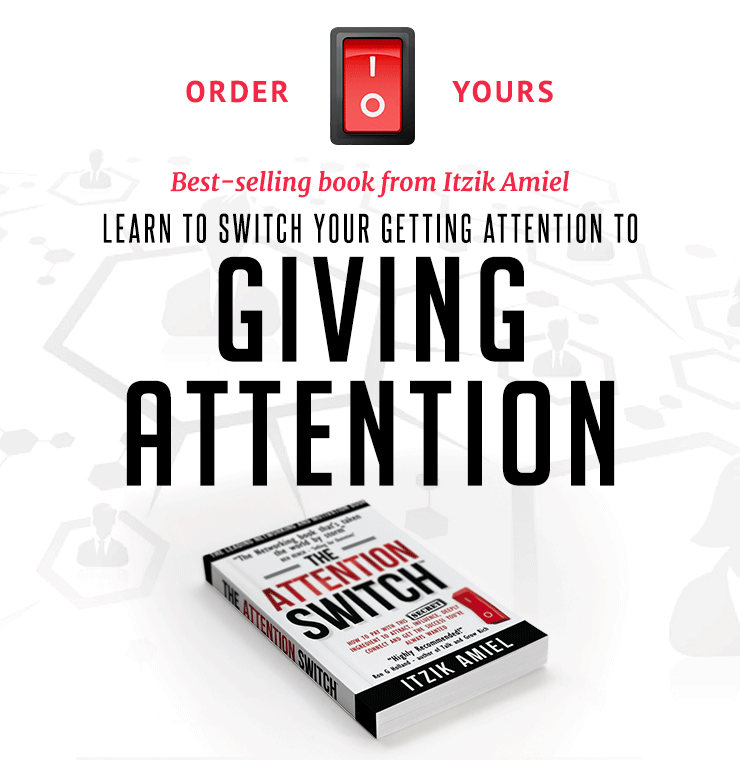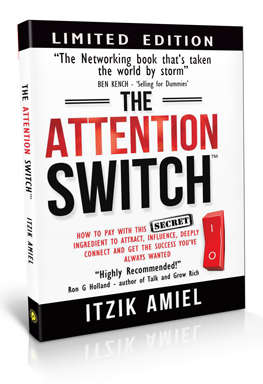I just recently finish another delivery of my flagship program: ‘The Power Networking Boot camp”. But this time it was different.
Most of the participants in the room were women. It really made me think.
Why does women are attracted more to learn about business networking?
Is it because they think they know less than men and need to get more expertise?
Or maybe because they think that networking is an area you need to invest and to learn to become an expert before going into business?
I should mention that many of the assumptions and questions I raised in my writing are very general and of course I am aware that there are situations that I might be proven to be wrong.
Let’s be clear: That men and women network differently doesn’t mean one gender does it well and the other poorly; sometimes, women’s networks are more effective than men’s. The key differentiator is WHY and HOW they network.
Have you ever wondered how men and women network differently?
Having been to quite a few networking meetings worldwide, I’ve seen that men are really good at going into a room full of people and starting up a conversation with someone they’ve never met before.
While women are much more nervous about going into a room full of strangers and striking up a conversation. They’re better at catching up with people they already know.
On the other hand, Women are more ‘relation’ driven gender. Women are great at building up strong relationships with people they meet, they care, they really want to get to know the other person and his business, before they’ll work together.
One networking commentator on LinkedIn put the difference succinctly: Men “start with a statement of their status … Women create community.”
I dearly believe the women value ‘authenticity’ in relationships.
It can take a long time for a woman to trust you enough to give you her business; and even longer before she’ll recommend you to someone she knows, in case you harm her reputation.
So if you would like to get more business out of referrals, what do you think is more beneficial – a woman character or a man character?
I think the answer is obvious. Woman of course!
Women are great communicators, men are more actively engaged in reaching out. Women also make few but deeper connections.
While men are more comfortable with technology, women may be better at networking in person.
According to a research done by catherine-clifford from Entrepreneur Magazine women seems to dominate every social media network except for one.
For more information on men and women’s social media habits, have a look see at the infographic from FinancesOnline.com:
And also in interesting finding on “Gender and Social Networks” by the University of Oxford, Internet Institute from October 2013.
Interestingly, a recent paper published by a team of INSEAD academics suggests that there are also distinct gender differences in how much we gain from networking.
The paper reveals that men tend to gain much more, financially at least, from their network than their female peers.
In his interesting co-authored book: “Business Networking and Sex”, Dr. Ivan Misner, Ph.D., founder of BNI discussed in length gender issues in networking on a survey of 12,000 entrepreneurs and self-employed business people across the globe.
Misner’s data showed women’s networks, though smaller than men’s, were comprised of deeper relationships, commonly called “strong ties.” Strong ties often begin on personal notes, with women bonding over stories about family or mutual friends.
Misner calls these connections relational (relationships before business).
In contrast, according to Misner, men’s connections, tend to be more transactional (business before relationships).
“For referrals and business development it’s all about deep roots and strong ties,” says Misner. “In which case, women are getting it right.”
“Women look for common ground and find places that they can support and collaborate . . . women socialise, they connect,” Misner says. “Men always called it gossiping.”
When they network, men get to the point faster—an introduction over a social event, then right to the ask for the business.
When we examine women interactions with other people, they tend to view the relationship as the goal. Women tend to think: ‘I want to have friends’; ‘I want to be liked’…,
Women don’t necessarily thinking about using people in the same way men do, to get to some goal.
I also should add that men need to learn how to engage women on topics that might interest them — something that women often already do.
As men connecting with women you need to learn to speak to women to relate to them, not to impress them!
Some of you (specifically men) might ask what’s wrong with going directly to the point – to discuss business?
The answer is – when it comes to building strong, productive relationships, time and building common ground are essential ingredients. Women truly understand it!
So for the women amongst you here are 4 powerful connection strategies to make you even better connectors [If you are a man, I will suggest you to read it carefully!]:
Strategy #1. Have a strategy for building relationships
On the one hand, women are wired to form alliances, to cooperate and collaborate, and to support each other.
On the other hand, women many times find themselves swamped by the number of relationships they are trying to maintain.
Women need to be more strategic in developing business relationships. They must target the relationships that will provide maximum benefit to their businesses.
Strategy #2. Learn to build ‘up’ & ‘down’ relationships
While most women are good at developing “horizontal” (peer-to-peer) networks, they are less effective in reaching out to different levels in their networks.
Women need to learn to become better in actively networking ‘up,’ seeking out women (and men) to be their mentors and guides to take part in board of directors, in executive committees.
In the same time, women need to learn to network ‘down’ to help and guide up-and-coming women in their fields.
Strategy #3. Learn to ask for help
Women are very good in developing strategic relationships, but they need to learn to use them more.
Part of developing relationships is reciprocity. You need to learn when to ask for help.
I always said that in order to connect with another person, genuinely, you need to add to the other person sufficient value. This value will definitely help you deepen and strength the relationships.
Now the next step in very easy. Once a women built a strong relationship, it will be easier for her to ask for help—and the easier for the other person to say yes.
Strategy #4. Learn to give support
Women should learn to support and help other women.
I believe that the best power connecting strategy any woman can develop is to actively support the efforts of other women.
Only then, every women will be able to build the kind of strategic relationships that will make them—and their businesses—stronger and healthier.
If I am not mistaken, it seems that regardless of the gender of the person who is networking, what matters what type of person make the connection.
So if you are a “relational type”, in Misner’s terminology, you will probably generate more business than people who are more ‘transactional type’ and you will use generosity to cement the relationship.
As a matter of fact, a ‘relational type’ person will spent slightly less time than a ‘transactional type’ will on networking and still will generate more business.
In networking, you don’t have to make every person you meet to be your best friend. It doesn’t have to be the most meaningful connection, but it does need to be a genuine one!
How much do you think gender roles have to do with how women and men network offline and online?
Do you believe that women are hesitant to “make the first move”? Or that men most of the time are not sincere as women while networking?
Please share your comments with me.

“Itzik is an International Speaker, Bestselling Author, Business Mentor & Attorney-at-law. The Global Leading Authority on Business Development, Business Networking, Referrals & Relationship Capital & Founder of THE SWITCH® and THE SWITCH HUB®”






